Battery-recycling – Closed-Loop-Plastics 14-02-2022 - Arhive
Battery-recycling – Closed-Loop-Plastics
-How does PP market perform after the Spring Festival holiday?
Around the Spring Festival, international crude oil rose rapidly due to geographical politics and local weather. WTI crude oil futures exceeded $93/barrel, hitting a new high since 2014, an increase of more than 6% compared with pre-holiday period. Therefore, on the first working day after the holiday, upstream chemicals all rose to varying degrees. Among them, PP futures rose by more than 4%, and the spot price also rose by 300-350 yuan/mt. In East China, mainstream traders offer for homo PP raffia at 8,800-8,900yuan/mt, and offers for low-MFR co PP are at 8,900-9,000yuan/mt. Battery-recycling – Closed-Loop-Plastics
PP has a good on the first working day after the holiday, what is the current situation of each sector?
From the perspective of petrochemical inventory, before and after the Spring Festival in 2022, the increase in petrochemical inventory is within a reasonable range, and in terms of absolute quantity, it is also basically at the medium level, and the pressure is not heavy for the time being.
Judging from the growth rate of the raw material side, the increase in the cost side of PP is mostly stronger than the increase in the spot price of PP, which also means that the sharp increase in the spot price of PP has not improved the efficiency of the industry, and the support of the short-term cost side is still strong.
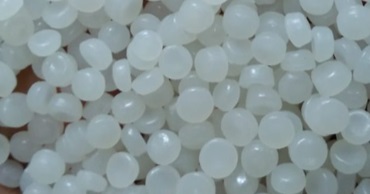
-Japan’s Kaneka to quadruple plastic that biodegrades at sea
Chemical company spends $130m to expand production of PHBH polymer
Kaneka, a Tokyo-based chemical company, plans to ramp up production of a biodegradable polymer that can be used for a broad array of plastic applications to 20,000 tons per year, four times the current output.
Kaneka’s polymer, dubbed PHBH, is biosynthesized by microorganisms using plant oils as the primary raw material, according to the company. The 100% plant-derived polymer is certified to biodegrade in seawater. If PHBH products are dumped into the sea, microorganisms will eventually digest more than 90% of them into carbon dioxide and water, the company says. Battery-recycling – Closed-Loop-Plastics
In Japan, a new law to urge companies to reduce their use of plastics is scheduled to come into force in April. Demand for Kaneka’s biodegradable polymer has been growing as consumers and investors pay increasing attention to companies’ performance on social responsibility and the environment.
Kaneka is shelling out 15 billion yen ($130 million) to expand the capacity of its plant in Hyogo Prefecture. The company has been selling PHBH-based products, including tableware, since 2019. There has been steady demand for these products despite being priced about twice as high as ordinary plastic products. The 7-Eleven convenience stores in Japan have been using biodegradable straws supplied by Kaneka since 2019. Battery-recycling – Closed-Loop-Plastics
With orders flowing in from a growing list of corporate users, including major foreign hotel chains and food makers, Kaneka President Minoru Tanaka is betting that the trend toward replacing traditional plastic products with biodegradable alternatives will accelerate sharply in the coming years. Starting with the 15 billon yen investment, the company will consider additional spending to boost domestic production capacity further to 100,000 to 200,000 tons annually by 2030.
PHBH is basically produced by a specific microorganism discovered by the company while fermenting plant oil. During fermentation, the microorganism ingests the oil and stores it as a polymer inside itself. Battery-recycling – Closed-Loop-Plastics
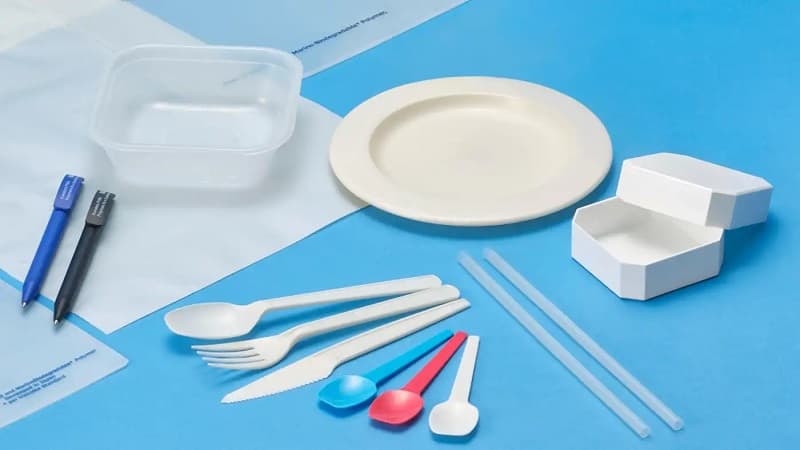
–Umicore boosts battery recycling tech
European firm says its process improves recycled lithium-ion battery metals yields.
Belgium-based Umicore says it has signed an agreement with Automotive Cells Co. (ACC) to provide battery recycling technology at an ACC pilot plant in Nersac, France.
Umicore describes itself as a pioneer in the recycling of rechargeable batteries, saying its battery recycling smelter in Hoboken, Belgium, has an annual capacity of 7,000 tons of lithium-ion batteries and battery production scrap, the equivalent of 35,000 electric vehicle (EV) batteries. Battery-recycling – Closed-Loop-Plastics
The plant started operations in 2011 to treat portable electronics batteries and early generations of EV batteries. Umicore says it has been continuously improving its processes and underlying recycling technologies so today they “reflect the combined know-how gains that Umicore has made during more than one decade of lithium-ion battery recycling.”
In the course of 2022, Umicore says it will introduce the latest generation of its proprietary recycling and smelting technology. After what the company calls intensive research and piloting activities, the process “is a significant step-up in recycling performance with an optimized operating window for EV batteries,” according to the company. Battery-recycling – Closed-Loop-Plastics
It cites a number of upgrades at the site:
a significantly improved metallurgical process with increased extraction efficiency of cobalt, nickel and copper to reach more than 95 percent yield for a wide variety of battery chemistries;
first-of-its-kind technology to recover most of the lithium, addressing a common constraint; and
automated material flow minimizing manual handling to “further increase process robustness and efficiency.”
The recovered metals will be delivered in battery-grade quality at the end of the Umicore recycling process allowing them to be re-circulated into the production of new lithium-ion batteries, the company says.
“This newest generation technology will be available for the market in 2022, and ensures minimal waste and impact on the environment, which will be vital for the surge in EV car adoption,” Umicore states. Battery-recycling – Closed-Loop-Plastics
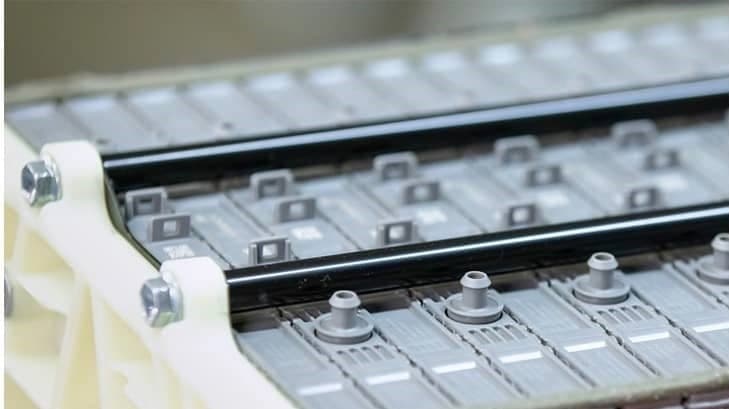
-Textile heating with graphene nanotubes
Available as concentrates that can be added into melted polypropylene or polyamide.
Heating mesh made of the fibres can be integrated into flexible materials or complexly shaped composite elements. Battery-recycling – Closed-Loop-Plastics
Amperetex, based in Kaliningrad, Russia, has developed an ultrafine polymer fibre with OCSiAl’s Tuball graphene nanotubes – also known as single wall carbon nanotubes – for the production of flexible textile heating elements.
“A current equivalent to an ordinary incandescent lamp with a power of 75 watts is enough to heat polymer material with a mesh made from such a fibre,” said Pavel Pogrebnyakov, founder and CEO of Amperetex. “The solution is safe for people – the voltage of clothing made from the fabric is only five volts.”
“Graphene nanotubes are one of the highest performing conductors on Earth,” added Dr Christian Maus, development and support leader for thermoplastics at OCSiAl Group. “At the same time, unlike other carbon additives, they are very flexible. Their shape is similar to a human hair, but 50,000 times thinner. Due to their unique properties, the dosage of graphene nanotubes required to modify polymer fibres can be so low that it doesn’t affect filament production or characteristics.”
The graphene nanotubes are available as concentrates that can be added into, for example, melted polypropylene or polyamide. Battery-recycling – Closed-Loop-Plastics
Heating mesh made of the fibres can be integrated into flexible materials or complexly-shaped composite elements. Laboratory tests have shown a fibre durability of 30,000 cycles, which is comparable to a 30-year service life. Electrically conductive heating meshes have successfully passed testing in various projects including an anti-icing roof, a bus stop, an anti-slip coating with integrated Amperetex heating elements, and embedded automatic heating sensors.
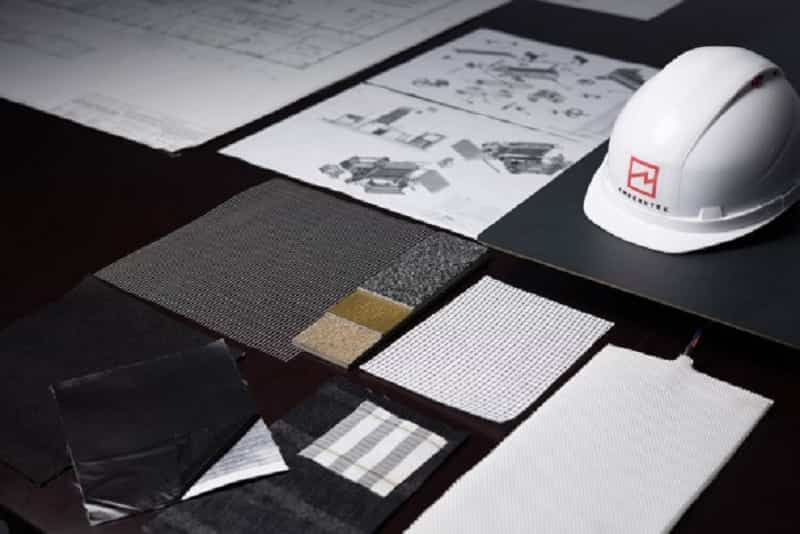
-LyondellBasell Invests in Infinity Recycling Venture Fund to Advance the Circular Economy
Rotterdam and Houston, February 11, 2022 – LyondellBasell today announced its investment in a Circular Plastics Fund led by global venture fund Infinity Recycling. This investment expands the company’s venture capital activities to help eliminate plastic waste in the environment and advance the circular economy.
“By investing catalytic capital in funds such as Infinity Recycling’s venture fund, we promote the collaboration required to propel a circular economy for plastics forward,” said Yvonne van der Laan, director of olefins and optimization at LyondellBasell. “We aim to help catalyze an additional five dollars from co-investors for every dollar we invest in venture funds focused on the recovery and recycling of plastic waste.”
With LyondellBasell’s investment, the fund will support early-stage companies deploying and developing advanced recycling technologies with a focus on bringing these technologies to scale in Europe. Battery-recycling – Closed-Loop-Plastics
In 2021, LyondellBasell was also a founding investor in Closed Loop Circular Plastics Fund, which is focused on accelerating infrastructure development and advanced technologies needed to increase the recovery of plastic waste in North America.
These investments align with LyondellBasell’s systemic approach to help end plastic waste in the environment and promote a circular, low-carbon economy. The company is focusing on mechanical recycling, advanced (molecular) recycling and the use of renewable-based feedstocks in its conventional production processes and aims to produce and market two million metric tons of recycled and renewable-based polymers annually by 2030. Battery-recycling – Closed-Loop-Plastics

-Sealed Air expands range of recycle-ready barrier display films
Sealed Air has introduced two new CRYOVAC Brand ECO BDF films to its range of recycle-ready barrier display films, which are designed for compatibility with LDPE mechanical and chemical recycling processes.
The new range includes ECO BDF20M, which is made from 100% virgin materials, and ECO rBDF20M, a barrier display film reportedly containing 30% Certified Circular Resins (CCR). Battery-recycling – Closed-Loop-Plastics
According to Sealed Air, both films were developed and tested according to protocols published by the On-Pack Recycling Label (OPRL) (UK) and the Association of Plastics Recyclers (APR), with practises aligning with those of Plastic Recyclers Europe. The company says that this means the films are RIC4 certified, as well as having been analysed by Cyclos and determined to be recycle-ready.
Arnaud Brunet, food films portfolio director EMEA at Sealed Air, comments: “The APR and PRE protocols are extremely well defined and diligently test the ability to recycle innovative new films alongside pure materials such as polyethylene.
“Recycling strategies are advancing throughout Europe, with infrastructures at various stages of development in different countries.
“Our aim was to develop new barrier display films that would optimise recycling compatibility across this diverse spectrum. It will help food processors, retailers and brands to improve resourcefulness as countries increasingly heads towards a circular economy.” Battery-recycling – Closed-Loop-Plastics
In addition, the sustainability benefits of the new ECO BDF films are apparently enhanced through an ultra-thin barrier, with both films being 21 microns – making them lighter and thinner than other widely used thermoformable films, according to Sealed Air.
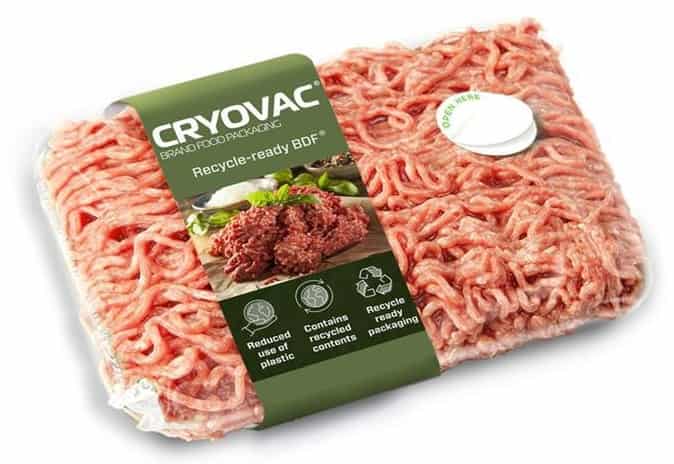
Battery-recycling – Closed-Loop-Plastics
